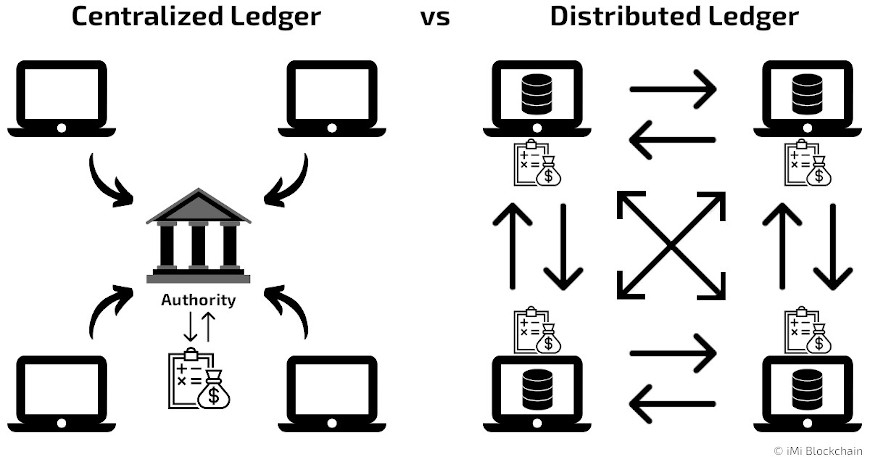
Understanding Distributed Ledger in Blockchain
Introduction:
In the realm of modern technology, one term that has been gaining significant attention is “distributed ledger,” especially within the context of blockchain. But what exactly is a distributed ledger, and how does it relate to blockchain technology? Let’s delve deeper into this innovative concept and explore its implications.
What is a Distributed Ledger?
At its core, a distributed ledger is a decentralized database that is maintained across several locations or participants. Unlike traditional centralized databases, where a single entity controls the data, distributed ledgers distribute data across a network of nodes, making it more secure and transparent. Each participant in the network holds a copy of the ledger, and any changes made to the ledger are reflected across all copies in real-time.
The Role of Blockchain:
Blockchain technology serves as the underlying framework for distributed ledgers. It employs cryptographic techniques to ensure the integrity and immutability of the data stored on the ledger. In a blockchain-based distributed ledger system, transactions are grouped into blocks and linked together in a chronological chain. This chain of blocks forms a tamper-evident record of all transactions, providing a transparent and auditable history of data.
Key Characteristics of Distributed Ledgers:
One of the primary characteristics of distributed ledgers is their decentralized nature. By distributing data across multiple nodes, distributed ledgers eliminate the need for a central authority, reducing the risk of a single point of failure. Additionally, distributed ledgers are immutable, meaning that once data is recorded on the ledger, it cannot be altered or deleted without the consensus of the network participants.
Enhancing Transparency and Trust:
Distributed ledgers play a crucial role in enhancing transparency and trust in various sectors, including finance, supply chain management, and healthcare. By providing a shared and immutable record of transactions, distributed ledgers enable greater transparency and accountability, reducing the potential for fraud and corruption. This transparency fosters trust among participants and facilitates more efficient and secure transactions.
Applications of Distributed Ledger Technology:
The applications of distributed ledger technology extend across a wide range of industries. In finance, distributed ledgers are revolutionizing the way transactions are conducted, enabling faster settlement times, reducing transaction costs, and mitigating counterparty risk. In supply chain management, distributed ledgers provide end-to-end visibility into the movement of goods, ensuring authenticity and traceability.
Challenges and Considerations:
While distributed ledger technology offers numerous benefits, it also poses several challenges and considerations. One of the main challenges is scalability, as increasing the size of the network can lead to slower transaction processing times. Additionally, ensuring the security and privacy of data stored on distributed ledgers remains a critical concern, especially in industries that handle sensitive information.
Future Outlook:
Despite these challenges, the future outlook for distributed ledger technology is promising. As organizations continue to explore innovative use cases and develop solutions to address scalability and security concerns, distributed ledgers are poised to revolutionize the way data is stored, shared, and managed across various sectors. With ongoing advancements in blockchain technology and increased collaboration among industry stakeholders, distributed ledgers have the potential to drive significant disruption and transformation in the digital economy.
Conclusion:
In conclusion, distributed ledger technology represents a paradigm shift in the way data is stored, shared, and managed. By leveraging blockchain technology and decentralization, distributed ledgers offer greater transparency, security, and efficiency across a wide range of industries. As organizations embrace this innovative technology and overcome existing challenges, distributed ledgers will continue to play a vital role in shaping the future of digital transactions and decentralized systems. Read more about distributed ledger in blockchain
